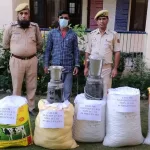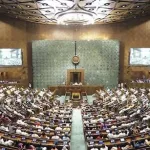Grief is the most primal of human emotions–a feeling that we have all gone through. It is untutored and gets trivialized when articulated. A child grieves when a pet dies, a favourite toy is lost, and most importantly when a parent, caregiver, or a loved one is no more. The act of grieving needs an expression–through words, prayers, tears, lamentations, art, emotions of anger, disillusionment, and being hurt. Grief is an energy that spills over every vessel that tries to contain it. It makes the world look unkind; a cold and desolate place. The irony of the world running smoothly when the subjective world of an aggrieved person has fallen apart makes the nature of grief even more ironic. It causes a sense of estrangement and defamiliarization.
In his poem “Lenox Hill,” Agha Shahid Ali bemoans the loss of his mother:
. . . You never let gods die.
Thus I swear, here and now, not to forgive the universe
that would let me get used to a universe
without you . . . .
Chimamanda Ngozi Adichie in her book Notes on Grief mourns the loss of her father and comments on grief as “a cruel kind of education. You learn how ungentle mourning can be, how full of anger. You learn how much grief is about language, the failure of language and grasping for language.” Grief poses a serious challenge to articulation. Try putting grief in words and you regret having shared it with anyone. The moment grief is put in words it gets transformed into something less of grief.
Grief is felt and lived, not spoken about. It becomes an inextricable part of being and it isn’t diminished with time. The assumption that the burden of grief gets lighter with time is untrue. The magnitude of grief isn’t reduced; rather we assume a larger personality around it as it keeps growing or even gnawing. Grief is immaterial but it can be evoked by the materiality of the world–a fragrance, a colour, a garment, an empty chair, a word, a symbol, or a missing voice might evoke memories in the mind that reminds one of loss and suffering.
Grief is an intensely personal emotion unlike joy which can be shared with many people around. It creates a chasm between the aggrieved person and the rest of the world. It is a broken burdensome part of your being that you carry for yourself. It means different things for different people. How the human mind processes grief and how grief affects us has always made great minds curious. It often results in an infantile and irrational anger directed towards the world and self.
Harold S. Kushner in his book When Bad Things Happen to Good People calls anger a natural outcome of grieving. Anger can be directed towards events, people, situations, and circumstances. Anger that is directed outwards becomes ‘blame’ and anger channelized inwards manifests as ‘depression’.
There are broader questions of how we as individuals and as a society deal with grief. Different people deal with grief differently–some become bitter as they rage against the unfairness of it all, yet some become more compassionate because of their suffering. To deal with grief it is necessary to process it at a subjective level.
Katherine Mansfield’s story “The Fly” tells us about grief that is left ungrieved. The boss is a character in the story who has been unable to process the grief of his son’s death fully. Having lost his only son to World War I, the first step towards healing or recovering from grief of such magnitude is acceptance. He has not fully accepted the loss of his son. He has glossed over the death of his son as a mere absence. He is unable to grieve when he wants to: “He wasn’t feeling as he wanted to feel”.
The natural expression of his emotions becomes a highly formalized affair. He is unable to shed tears as he groans his son’s name. The boss hasn’t gotten over the trauma of his son’s death but he is unable to mourn for his son as he has repressed grief by denial, masked over by over-ambitious pursuits and being vent out by seeing others miserable. Consequently, the boss tortures a poor fly in his office dropping ink on it until it dies.
As a society, dealing with grief needs sensitivity and consideration of the highest order. Kushner wrote his book ‘When Bad Things Happen to Good People’ in contemplation of his son’s death due to progeria, a rare degenerative disease that causes rapid aging, causing his son to die two days after his fourteenth birthday. He poses an important question in the book–what do we say to an aggrieved person? He evokes the biblical term, “Job’s comforters” for those who console and no matter what they say, end up saying the wrong thing. The only thing that we can do right for the afflicted person is to show up and help them know that they can count on us.
Kushner remarks, “It is hard to know what to say to a person who has been struck by tragedy, but it is easier to know what not to say. Anything critical of the mourner (‘don’t take it so hard,’ ‘try to hold back your tears’, ‘you’re upsetting people’) is wrong. Anything that tries to minimize the mourner’s pain (‘it’s probably for the best,’ ‘it could be a lot worse,’ ‘she’s better off now’) is likely to be misguided and unappreciated. Anything which asks the mourner to disguise or reject his feelings (‘we have no right to question God,’ ‘God must love you to have you selected you for this burden’) is wrong as well.”
Sympathy and advice can wait for a later time but empathy and presence help in healing through grief:
Ye kahāñ kī dostī hai ki bane haiñ dost nāseh
Koī chārasāz hotā koī ġham-gusār hotā (Ghalib)
(Is this friendship that friends have turned advisers?
Would there have been a healer; a comforter!) (Author’s translation)
To achieve a state-of-ease-in-uneasiness, grief needs to be mourned. The Bible gives an account of Jacob’s grief as a prototypical response of an aggrieved person who asserts his right of mourning:
“And Jacob rent his clothes, and put sackcloth upon his loins, and mourned for his son many days. And all his sons and all his daughters rose up to comfort him; but he refused to be comforted; and he said, For I will go down into the grave unto my son mourning. Thus his father wept for him”. (Genesis 37:34-36)
After having mourned (which is a continuous affair), acceptance is the first step towards healing and denial opens up doors for all other nullifying emotions. Viktor Frankl’s survival through the holocaust taught him that human suffering is absurd and senseless but the only redemption is to be found in the meaning we give to our suffering. Logotherapy is the art of assigning meaning to suffering as well as life: “If there is meaning in life at all, then there must be a meaning in suffering. Suffering is an eradicable part of life, even as fate and death. Without suffering and death human life cannot be complete.” (Man’s Search for Meaning). Meaning in suffering cannot be found unless suffering is acknowledged.
Grief ceases to be just grief. It has to assume other forms of expression for its sustenance. Sigmund Freud propounded the concept of ‘Sublimation’ as one of the defense mechanism while dealing with unpleasant or unacceptable unconscious desires or memories. Some human minds after having suffered dispel suffering into great works of art and science. A perfectly chiseled sculpture might be telling about the pain of the sculptor. Sometimes, the mind that suffers and the hand that creates share the same story.
Poetry, music, paintings, and great human endeavors might be a result of great suffering. The ancient Japanese art of Kintsugi is quite transforms pain into beauty. Kintsugi is the art of mending broken ceramic objects like a bowl, a vase, a vessel by lacquer and beautifying it with powdered gold. The cracks in a vessel are beautified by gold and the vessel is mended back into its original frame.
There is a lesson that no matter how many parts we are broken into there is a beautiful art with which the shattered bits can be gathered back and mended with gold. Our cracks, scars, wounds, and bits can be gathered back and put together by the labour of love. The scars and the cracks will be more valuable now that they are mended by gold. Gold is a metaphor for courage, resilience, beauty, art, innovation, and recreation of self. The will to live (with grief) is closely connected to hope. O’ Henry’s short story “The Last Leaf” tells us how hope sustains life.
Hope fails to quantify itself and that is why it is called hope. Sometimes, it is real and sometimes it is created through art, love, and labour. As long as the last leaf is present, the will to live persists. We all search for our metaphorical last leaves–our reasons to live and to strive for a space beyond immense grief where destiny provides no alternate narratives, but art or human endeavour does.
(The Author is Head, Department of English; Government Degree College, Hyderpora)








